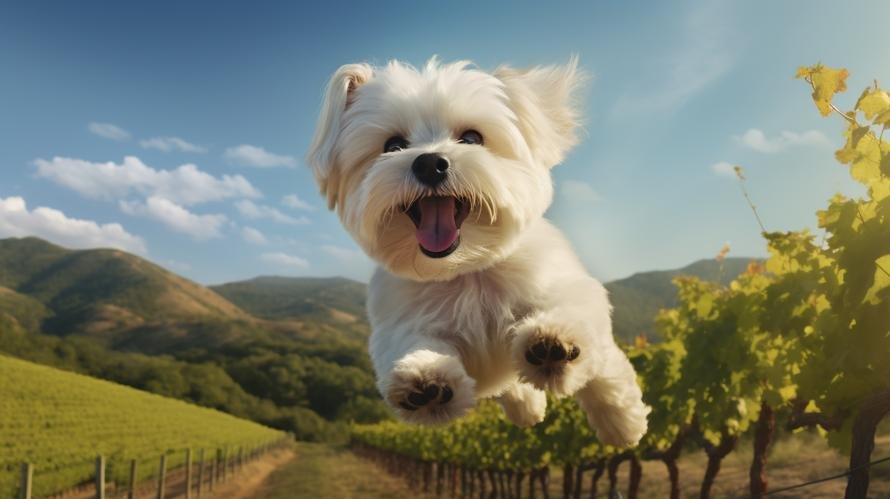Did you know that the tiny Maltese breed, known for its long and silky hair, originates from the island country of Malta located in the heart of the Mediterranean Sea? This breed has a fascinating history that dates back thousands of years, gracing the laps of royals, queens, and artists throughout history.
So, could it be possible that this little dog, standing proudly at just 8 to 10 inches tall, could be aggressive? As surprising as it might sound, the answer isn’t so straightforward. Understanding the temperament of the Maltese breed requires moving beyond the prejudice associated with tiny dog breeds. So, let’s delve into the world of these pint-sized pets and set the record straight.
Generally, aggression is not a trait commonly associated with the Maltese breed. These dogs are known for their friendly, lively, and playful nature. They are companion dogs, which means they were bred to keep people company. Always delighted to sit in a lap, the Maltese serves as a cheerful companion with a knack for understanding human emotions. While they tend to become particularly bonded with one person in the household, they’re usually social with the entire family and even strangers.
However, every dog has its individual personality and behavior. Some Maltese dogs might occasionally show signs of aggression, mainly due to an improper upbringing, lack of training, or genetic factors. Additionally, their small size can make them susceptible to develop the “Small Dog Syndrome”. This is a set of behaviors seen in small dogs where they overcompensate for their size by being overly assertive or aggressive. They may also feel the need to defend themselves out of fear.
If your Maltese is showing signs of aggression, it could be because of several factors. Fear, pain, possessiveness, frustration, lack of socialization, and misunderstanding are some of the common triggers. Trying to pinpoint the cause of the aggression can be beneficial in finding a solution.
Training is crucial when dealing with an aggressive Maltese. Start by introducing basic commands and gradually progress towards more complex obedience techniques. Socializing your Maltese from an early age is another key factor in preventing aggression. Exposing him to different environments, people, and animals will help him become more comfortable in different situations.
Positive reinforcement plays a crucial role in training. Reward good behavior with treats, praise, or toys. Avoid using harsh techniques. Instead, insist on commands in a firm but gentle voice to show your dog that you’re in control. Keep sessions short and fun to keep your dog’s attention and prevent frustration.
Sometimes, aggression could be a result of underlying health issues. Regular vet check-ups can help monitor any potential health concerns. For instance, a painful condition or illness could lead the dog to become irritable and aggressive.
In cases where aggression persists, consider seeking professional help like a vet or a certified dog behaviorist. They have the experience and knowledge to identify the root cause and offer personalized plans to manage and reduce aggressive behavior.
Remember, it’s essential to respond with patience, empathy, and understanding. Don’t lose hope. These little dogs are known for their sharp minds and usually respond well to persistent trainings. They love their humans and are eager to please.
To sum it up, all dogs, including a Maltese, have the potential to be aggressive under certain conditions. However, the Maltese by nature is not an aggressive breed. They are loving, charming, and intelligent dogs who make excellent companions. Any sign of aggression they might display can be effectively managed and reduced through early socialization, appropriate training, and proper care.
So, if you’re thinking of welcoming a Maltese into your family, don’t let the fear of possible aggression deter you. Instead, be prepared to invest your time and effort in giving your new furry friend the proper training and care they require. A well-socialized, well-trained Maltese is a joy to have around. These lovely pets will surely fill your lives with endless love, joy, and companionship.



